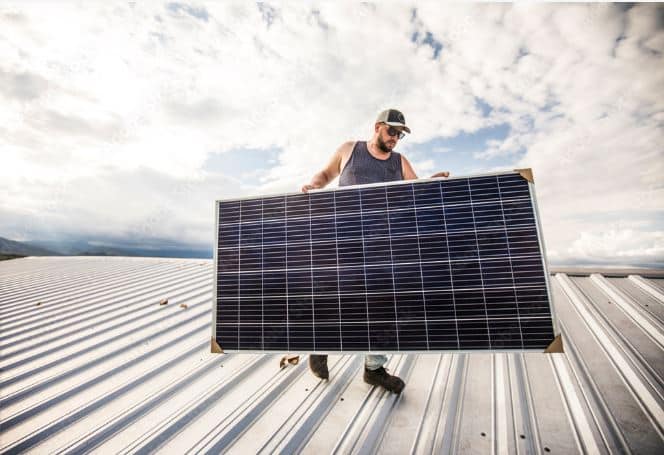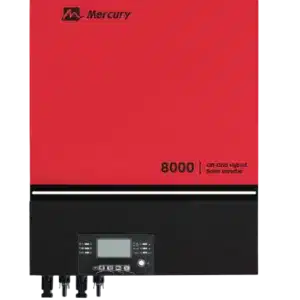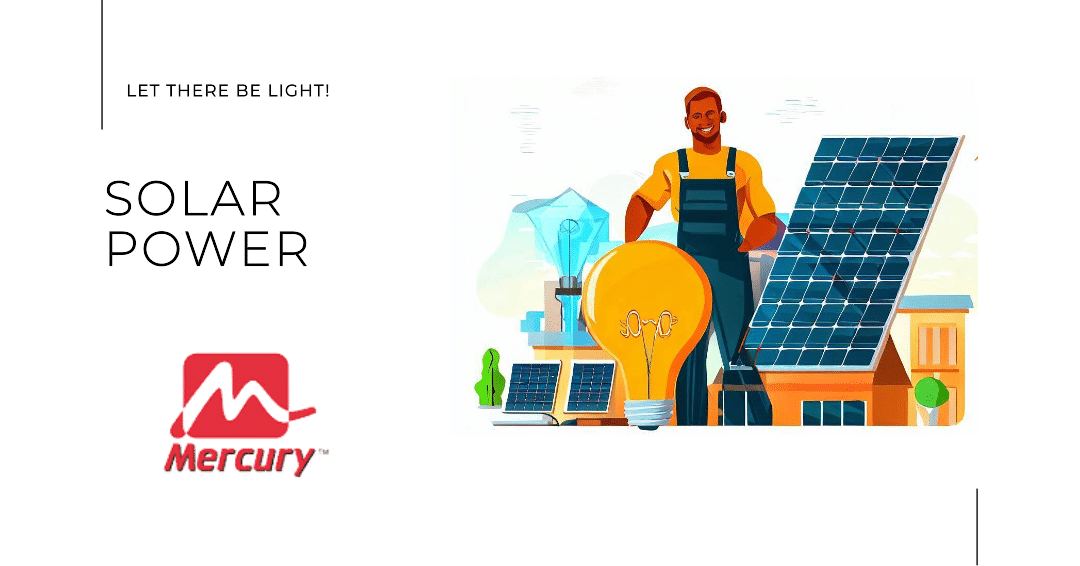Harnessing the Sun: Solar Energy for Small Businesses in Nigeria
In the bustling heart of Nigeria, small businesses are the lifeblood of the economy, driving innovation and providing essential services. However, these businesses often face a significant hurdle – reliable access to power. With frequent outages and the high cost of traditional energy sources, maintaining consistent operations can be a challenge. But in the face of adversity, Nigerian entrepreneurs are finding a powerful ally in an abundant, natural resource – the sun.
Solar energy, a form of renewable power that harnesses sunlight to generate electricity, is becoming an increasingly popular solution for these businesses. With Nigeria’s tropical climate providing plenty of sunshine, solar power is not only viable but also cost-effective and environmentally friendly.
This blog post explores how small businesses in Nigeria are leveraging solar energy to overcome their power challenges and thrive. We’ll delve into real-life examples, outlining the steps they took, the results they achieved, and how you can do the same. So, let’s embark on this journey of resilience, innovation, and sustainable growth.
The Challenge

In Nigeria, small businesses form the backbone of the economy, contributing significantly to employment and GDP. Yet, these businesses grapple with a persistent challenge that hampers their growth – the issue of reliable power supply.
The Nigerian power sector, despite its potential, is fraught with frequent and prolonged power outages. The national grid is often unable to meet the high demand for electricity, leading to blackouts that can last several hours. For small businesses, these power interruptions can be devastating. They disrupt operations, lead to loss of revenue, and can even damage equipment.
To cope with the unreliable grid power, many businesses resort to diesel or petrol generators. However, this solution comes with its own set of problems. Generators are expensive to run due to the high cost of fuel. They also require regular maintenance, adding to the operational costs. Moreover, generators are noisy and pollute the environment, contributing to air and noise pollution.
The high cost of fuel in Nigeria exacerbates these challenges. As of July 2023, petrol prices in Nigeria reached an all-time high of 617 naira ($0.7802) per liter. This increase came about two months after Nigerian President Bola Tinubu scrapped a popular but costly fuel subsidy in May.
Despite being a major oil producer, Nigeria doesn’t refine its own oil, leading to expensive imports. The opening of one of the world’s largest refineries in Nigeria this year offers hope, but it will likely be years before Nigerians feel its impact. Furthermore, diesel prices, crucial for businesses running generators, were at a staggering 842.250 naira per liter.
In this challenging scenario, maintaining consistent operations becomes a daunting task for small businesses. The need for a reliable, cost-effective, and environmentally friendly power solution is clear and urgent. This is where solar energy comes into the picture.
The Solution

In the face of these challenges, an innovative and sustainable solution has emerged – solar energy. This form of renewable energy harnesses the abundant sunlight that Nigeria is blessed with, converting it into electricity that can power businesses.
Solar energy offers a myriad of benefits that make it an attractive alternative to traditional power sources. Firstly, it is renewable, meaning it is not subject to the price volatility and supply issues that plague fossil fuels. The sun shines every day, providing a consistent and reliable source of power.
Secondly, solar energy is cost-effective. While the initial investment in solar panels and installation might be significant, the long-term savings are substantial. Solar panels can last for 25-30 years, during which they generate free electricity. This can result in significant cost savings for businesses, especially when compared to the ongoing costs of running generators or the fluctuating costs of grid electricity.
Thirdly, solar energy is environmentally friendly. It does not produce harmful emissions or contribute to climate change, making it a sustainable choice that aligns with global efforts to reduce carbon footprints.
For small businesses in Nigeria, transitioning to solar energy involves installing solar panels, setting up a battery storage system, and integrating this with their existing power system. Companies like Mercury Direct offer comprehensive solar energy solutions, providing consultation, products, installation, and after-sales service.
By adopting solar energy, small businesses in Nigeria can overcome their power challenges, reduce operational costs, and contribute to a greener future. The next section will delve into a real-life example of a business that successfully made this transition.
How They Did It

To illustrate the transition to solar energy, let’s consider the example of a small IT firm in Lagos, Nigeria. This firm provides a range of services, including software development, IT consulting, and digital marketing. While their operations are not as energy-intensive as manufacturing or retail, a reliable power supply is crucial for their work.
Previously, the IT firm relied on grid power, supplemented by a generator during power outages. However, the frequent power interruptions were disruptive, causing loss of work and reducing productivity. The cost of running the generator was also a significant expense.
Recognizing the need for a more reliable and cost-effective power solution, the firm decided to explore solar energy. They reached out to Mercury Direct, a leading provider of solar energy solutions in Nigeria.
The team at Mercury Direct conducted a thorough assessment of the firm’s energy needs, taking into account factors like the number of computers, servers, air conditioners, and other equipment. They also evaluated the available space for installing solar panels.
Based on this assessment, Mercury Direct recommended a solar energy system that would meet the firm’s power needs. This included solar panels, a battery storage system, and a solar hybrid inverter with inbuilt mppt solar charge controller .
The solar panels were installed on the roof of the firm’s office building, where they could get maximum sunlight. The battery storage system was set up to store excess power generated during the day for use during the night or on cloudy days.
The solar energy system was then integrated with the firm’s existing power system. This allowed the firm to use solar power when it was available and switch to grid power or the generator when necessary.
Throughout the process, Mercury Direct provided support and guidance, ensuring a smooth transition. They also trained the firm’s staff on how to operate and maintain the solar energy system.
The transition to solar energy was a success. The IT firm was able to overcome their power challenges and reduce their operational costs. The next section will delve into the results that the firm achieved after implementing solar energy.
Results

The transition to solar energy brought about significant changes for the IT firm. The most immediate impact was the reliable power supply. No longer were they at the mercy of the grid or dependent on a noisy, expensive generator. The solar energy system provided a consistent power supply, ensuring that their operations could run smoothly.
The firm reported a significant reduction in their operational costs. While the initial investment in the solar energy system was substantial, the long-term savings more than made up for it. The cost of running the generator, including fuel and maintenance, was eliminated. The firm was also able to reduce their reliance on grid power, which can be expensive.
In terms of productivity, the firm saw improvements as well. With a reliable power supply, there were fewer disruptions. This allowed the team to work more efficiently, leading to better results for their clients.
The firm also noted the positive impact on their environmental footprint. By using solar energy, they were able to reduce their carbon emissions, contributing to the global efforts against climate change.
Overall, the transition to solar energy was a resounding success for the IT firm. They were able to overcome their power challenges, reduce costs, improve productivity, and contribute to a greener future. The next section will conclude this post and provide a call to action for other small businesses in Nigeria.
Conclusion
The journey of this IT firm in Lagos serves as a powerful testament to the transformative potential of solar energy for small businesses in Nigeria. By harnessing the abundant sunlight that graces our nation, they were able to turn a persistent challenge into a strategic advantage.
Solar energy provided them with a reliable and consistent power supply, eliminating the disruptions caused by power outages. It also led to significant cost savings, freeing up resources that could be invested back into the business. Moreover, by choosing a renewable energy source, the firm took a step towards sustainability, reducing their carbon footprint and contributing to global environmental efforts.
This story is not just about one IT firm. It’s about the countless small businesses across Nigeria that grapple with similar challenges. It’s about the potential that lies in our abundant natural resources, waiting to be harnessed. And it’s about the brighter, more sustainable future that we can build together.
If you’re a small business owner in Nigeria, we invite you to consider solar energy. Whether you’re running an IT firm, a retail store, or a manufacturing unit, solar energy can provide a reliable, cost-effective, and sustainable power solution. At Mercury Direct, we’re here to guide you on this journey. Let’s harness the power of the sun and let your business shine.
Are you ready to embrace the power of the sun? Are you ready to say goodbye to frequent power outages, high energy costs, and dependence on generators? If so, it’s time to explore solar energy for your business.
At Mercury Direct, we offer comprehensive solar energy solutions tailored to your needs. From assessing your energy requirements to installing the solar system and providing after-sales support, we’re with you every step of the way.
Don’t let power challenges hold your business back. Harness the power of the sun and let your business shine. Contact Mercury Direct today for a consultation on our solar energy solutions. Let’s work together to create a brighter, more sustainable future for your business.

